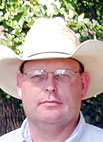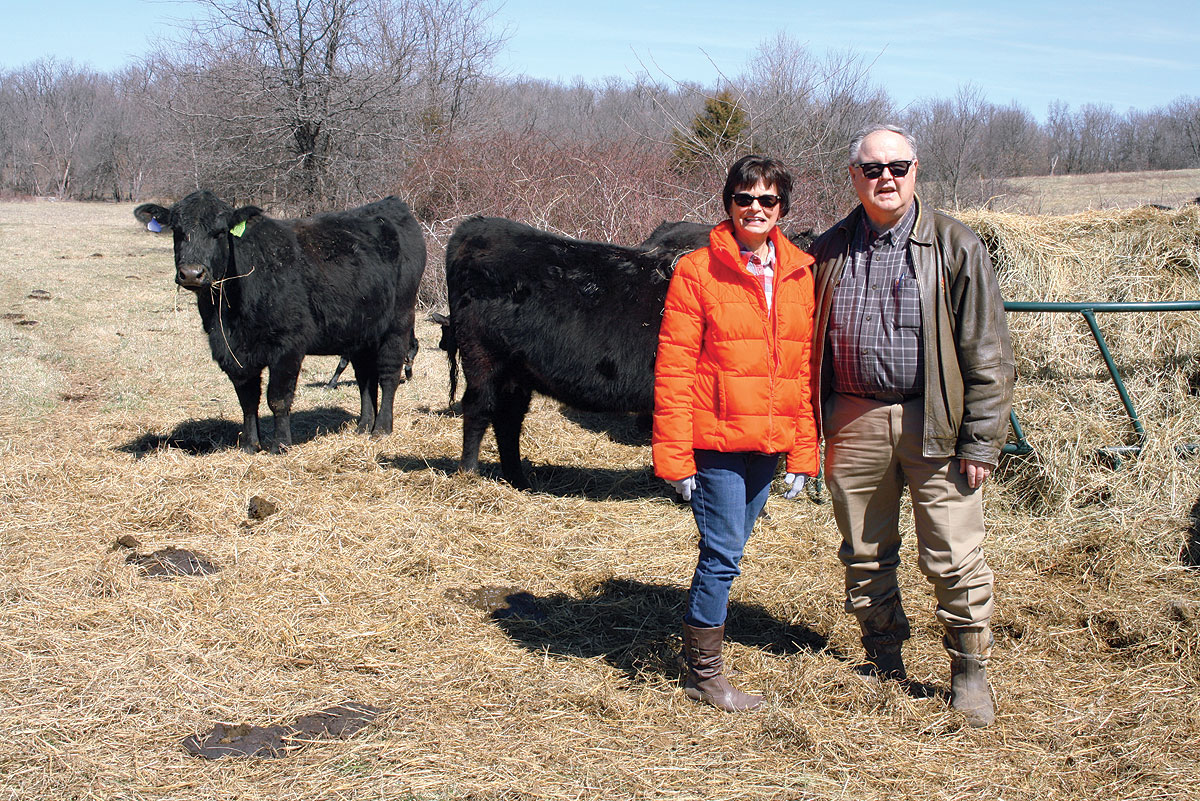
Over 140 people from 11 states gathered this spring at the MO-ARK Livestock Marketing Center in Exeter, Mo., for a chance to purchase bulls that were bred and developed in Fescue Country. The idea was to purchase low-input bulls.
It all started 12 years ago when Kit Pharo, of Pharo Cattle Company (PCC) in Colorado, began producing bulls on fescue followed by developing bulls on fescue 8 years ago. Kit explained, “We’ve been selling bulls for 23 years. When we started we wanted to be different. We wanted to stay away from falsified inputs. We use solar energy through forage management. Our cows have been bred to do more with less.”
Kit continued, “For the past 50 years, inputs have risen four times faster than cattle prices. The only way to get control is to reduce and eliminate inputs. Nothing is cheap now. I want to increase production while decreasing inputs.”
In order to produce bulls that are well suited for the herds they will end up in PCC utilizes cooperative producers and bull developers across the country. The three main goals are low-maintenance, longevity and fertility. Each cooperative producer works toward producing bulls and cows that meet these three goals.
Jason Salchow, a bull developer for PCC in Billings, Mo., is on his third group of Fescue Country bulls. Jason explained his involvement, “PCC contacted me three years ago. They were looking for custom graziers in Missouri to develop their bulls on fescue. I was familiar with their program of producing low-input cattle that have good genetics. I had even recommended some of their bulls to my clients in the past.”
Jason just received 120 fall-born bulls from cooperative producers in Texas, Oklahoma, Mississippi and Missouri. His farm conducts what PCC calls a forage test. The forage test begins in June when Jason receives the bulls and concludes in January when Kit comes to weigh and evaluate each bull.
The 120 bulls will be broken up into contemporary groups of 30-40 head each. The idea is to compare individuals out of the same sire by giving them the same opportunities. “This program is unique because we are trying to challenge the bulls. If a bull doesn’t meet the challenge, then they are culled from the program. Seedstock producers should be harder on their cattle than you are,” explained Jason.
As a bull developer, Jason is an impartial third party. “I treat these bulls as fairly as I can to challenge them and see who responds and who doesn’t.”
The idea behind the bull development program is to produce cattle that are adapted for each region. Jason said, “We want these bulls to be tough, adapted and to have gentle dispositions. They come to my farm during the hottest time of the year and some won’t be fescue adapted. That is when the cooperative producers will reevaluate their breeding decisions.”
The bulls on Jason’s farm will strip graze all winter on stockpiled fescue. Each paddock is roughly 6 acres and the bulls are given two allotments a day. “The goal is to have them eat what they want and trample the rest back into the soil and then we allow fresh forage. It is an art of stockmanship. It is hard to teach. You have to use consistent adjustments and make observations,” explained Jason.
Minimal input is key to success. “We don’t want to raise these bulls any differently than the herds they will end up in. This program is as honest as it can be. These bulls will do what they are supposed to for the long haul,” added Jason.
Jason is no stranger to livestock or custom grazing. Jason grew up on his family’s beef cattle farm in Billings.
After high school Jason attended Missouri State University in Springfield, Mo., and then Veterinary School at the University of Missouri, in Columbia, Mo. He has been involved in non-traditional vet practices for the past 10 years. He is the livestock market vet for the MO-ARK Livestock Marketing Center. He also does consultant and reproduction work. Jason currently teaches Vet Science at MSU in the fall and spring.
Jason has been a custom grazier for the past 12 years, grazing dairy heifers and stocker steers. “I still do other custom grazing stuff,” said Jason. “The challenge is grass scheduling. Prior to developing bulls for PCC, I would strictly have spring and fall grazing and take the winters off. I wasn’t used to wintering cattle. But developing consistent long-term relationships, like with PCC, is important to me.”
Jason is currently mentoring two of his former students, Ryan and Noelle Oney, who work on the farm full-time. Jason’s wife, Sharon, and four children are also involved on the farm. “My children love to work and move the cattle. There is a lot of saddle time for them. It’s fun for us all to get involved on the farm,” concluded Jason.







